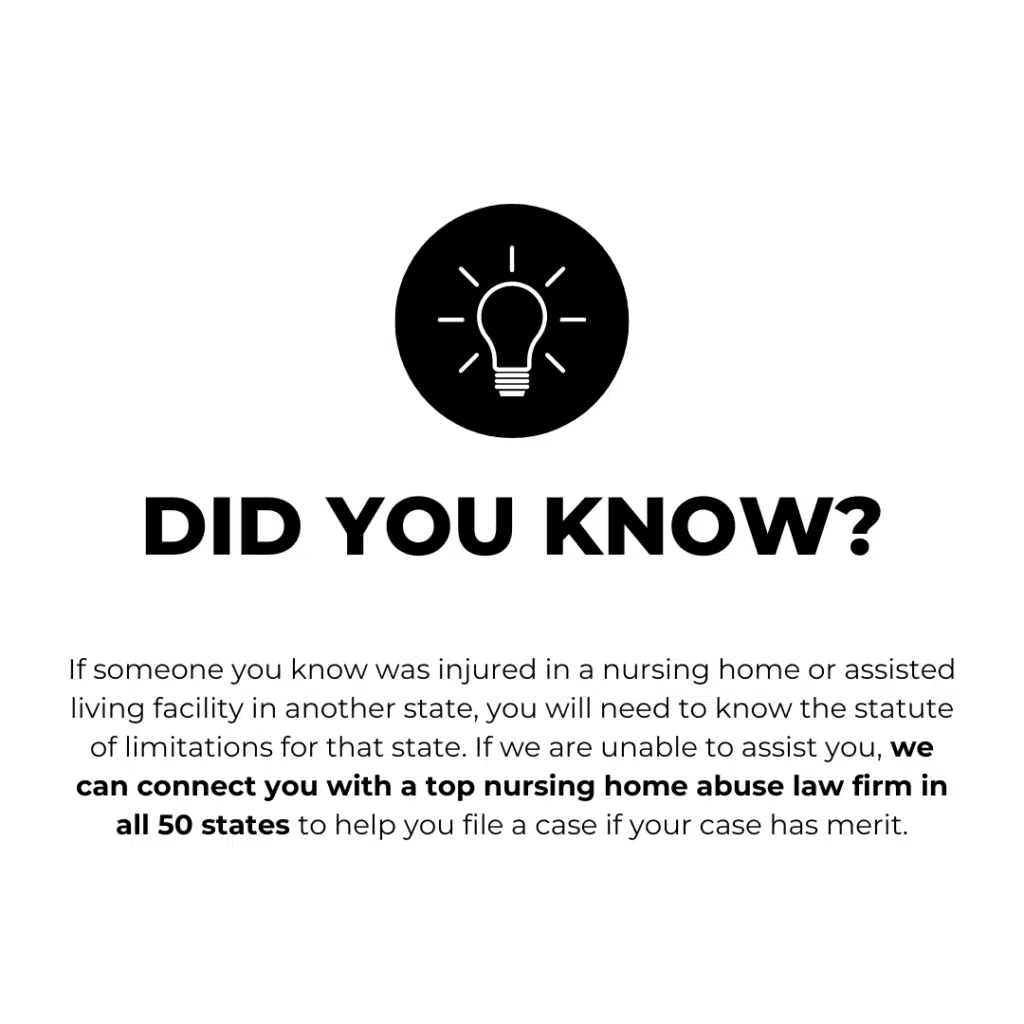
Nursing home abuse and neglect put vulnerable residents at serious risk, leading to malnutrition, dehydration, infections, and preventable injuries. When facilities fail to provide adequate care, residents suffer, and families are left feeling helpless. Lack of supervision, improper medical treatment, and unsafe conditions can result in devastating harm. Understanding the warning signs, knowing your legal rights, and holding negligent facilities accountable are crucial steps in protecting your loved ones. Learn how to take action and seek justice.
November 6, 2024
3 min
Nursing Home abuse and neglect are distressing realities that affect countless vulnerable individuals across the United States, including throughout the State of Ohio. Families entrust nursing homes with the care of their loved ones, expecting compassion, safety, and dignity. However, when these facilities fail to meet these standards, it’s crucial to understand who investigates allegations of abuse and neglect and how they are addressed.
Several state agencies are responsible for investigating nursing home abuse and neglect in Ohio. These agencies include the Ohio Department of Health and The Long-Term Care Ombudsman Program, along with local and state police departments.
Nursing home abuse encompasses various forms of mistreatment, including: physical, emotional, sexual, and financial exploitation. Neglect refers to the failure to provide adequate care, leading to harm or endangerment of residents. Both abuse and neglect can have devastating consequences on the physical and psychological well-being of elderly residents.

In Ohio, several agencies play key roles in investigating nursing home abuse and neglect claims. The primary agency responsible for oversight is the Ohio Department of Health. The Ohio Department of Health regulates nursing homes in the state, ensuring compliance with regulations and investigating complaints regarding abuse, neglect, or violations of the standards of care.
Complementing the regulatory efforts of the Ohio Department of Health is the Long-Term Care Ombudsman program in Ohio. This program serves as a voice for residents of long-term care facilities, offering advocacy, support, and resolution services. Ombudsmen are highly trained professionals equipped to investigate complaints, mediate disputes, and ensure that residents’ rights are upheld. They act as intermediaries between residents, their families, and nursing home staff, fostering communication and facilitating the resolution of issues in a fair and impartial manner.
One of the strengths of the Long-Term Care Ombudsman program is its commitment to empowering residents and their families throughout the investigative process. By providing information, guidance, and emotional support, ombudsmen help individuals navigate the complexities of filing complaints and pursuing resolution. They serve as trusted allies, dedicated to protecting the dignity and rights of nursing home residents and promoting a culture of accountability within long-term care facilities.
In addition to their investigative duties, ombudsmen also play a vital role in educating residents and their families about their rights and available resources. Through outreach initiatives and educational programs, they empower individuals to make informed decisions and advocate for their own well-being. By fostering transparency and awareness, the Long-Term Care Ombudsman program contributes to a safer and more compassionate environment for nursing home residents across Ohio.
The collaborative efforts of agencies like the Ohio Department of Health and the Long-Term Care Ombudsman program are essential in safeguarding the rights and welfare of nursing home residents. By working together to enforce regulations, investigate complaints, and provide advocacy and support, these agencies strive to ensure that every individual receives the dignified and respectful care they deserve.
Victims of nursing home abuse or neglect in the State of Ohio have legal recourse to seek justice and compensation for their suffering. One avenue is through filing a lawsuit against the negligent parties, including the nursing home facility, staff members, or individuals responsible for the abuse or neglect.
Nursing home abuse lawsuits can be complex, requiring evidence of wrongdoing and legal expertise to navigate. However, with the assistance of experienced attorneys specializing in this area, victims and their families can pursue accountability and restitution for damages incurred.
If you suspect that a loved one is experiencing abuse or neglect in a nursing home in Ohio, it is essential to take immediate action to protect their well-being. Here are some steps you can take:
Nursing home abuse and neglect are serious issues that demand swift and decisive action. In Ohio, agencies such as the Ohio Department of Health and the Long-Term Care Ombudsman program are dedicated to investigating complaints and ensuring that residents receive the care and protection they deserve. By understanding the investigative process and legal recourse available, individuals can advocate for their loved ones and hold negligent parties accountable for their actions. Together, we can strive to create safer and more compassionate environments for elderly residents in nursing homes across the State of Ohio.
Michael Hill is a nationally recognized attorney who handles exclusively cases against long term care facilities. Michael and his firm, Michael Hill Trial Law, handle cases across the country. If you have any questions about cases involving any nursing home, assisted living facility, or group home, you can contact Michael Hill Trial Law at www.protectseniors.com, by sending an email to info@protectseniors.com, or by calling (800) 659-2712.